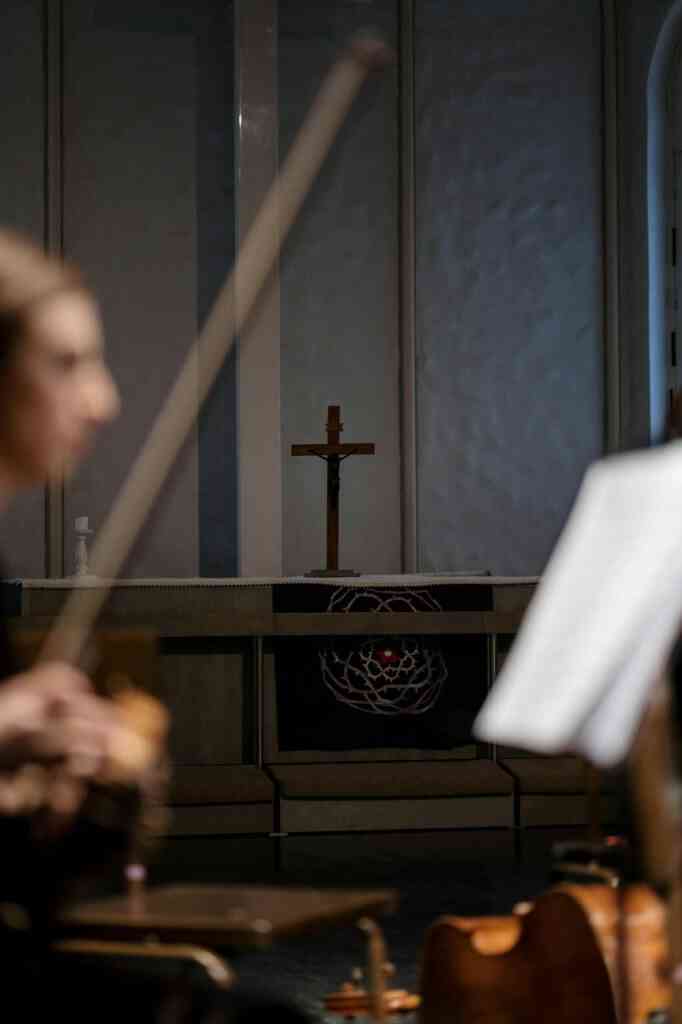An Ohio Church’s Fight for Religious Freedom: Challenging Zoning Laws to Provide Shelter to the Homeless
In the heart of Bryan, Ohio, a local church named Dad’s Place has become an unlikely battleground in a legal clash over religious freedom, zoning regulations, and the responsibility of religious institutions to serve the vulnerable. This captivating story unfolds as the church faces off against city authorities in a fight for the right to provide temporary shelter to those experiencing homelessness.
Dad’s Place: A Beacon of Hope for the Homeless
Nestled in the quaint city of Bryan, Dad’s Place stands as a beacon of hope for those facing the harsh realities of homelessness. Guided by the biblical teachings of Matthew 25, which emphasize providing aid to the needy, the church embarked on a mission to offer overnight stays to individuals without shelter. Since March 2023, Dad’s Place has extended its compassionate embrace, accommodating an average of eight individuals and two church volunteers each night, offering respite from the cold streets and a glimmer of hope for a better tomorrow.
Zoning Restrictions: A Roadblock to Compassion
However, the city of Bryan took umbrage with Dad’s Place’s provision of housing to the homeless, citing zoning regulations that prohibited residential use on the first floor of the building where the church was situated. The city swiftly issued an order demanding the church cease housing people within 10 days, arguing that the church’s actions violated zoning laws and raised safety concerns. This unexpected roadblock threatened to extinguish the beacon of hope that Dad’s Place had become for the homeless community.
Pastor Chris Avell’s Unwavering Stand: Faith Over Fines
Undeterred by the city’s order, Pastor Chris Avell, the steadfast leader of Dad’s Place, refused to comply. With unwavering conviction, he maintained that providing food and shelter to those in need was a fundamental religious activity protected by the First Amendment. His refusal to bow to the city’s demands resulted in 18 zoning code violations, punishable by hefty fines, imprisonment, or both. Yet, Pastor Avell stood firm, his faith guiding his actions and his determination unwavering.
Legal Battle Ensues: A Clash of Rights
In response to the city’s actions, Dad’s Place, represented by First Liberty Institute, a formidable law firm dedicated to religious liberty cases, filed a federal lawsuit against the city. The lawsuit boldly asserted that the city’s zoning laws and enforcement actions were discriminatory and targeted the church’s religious activities. The church’s legal team argued that providing shelter to the homeless was an integral part of their religious mission and that the city’s actions infringed upon their First Amendment rights.
City’s Defense: Public Safety and Zoning Regulations
The city, unwavering in its stance, maintained that it had a legitimate interest in enforcing zoning laws to ensure the safety and well-being of its residents. The city pointed to concerns regarding fire code violations and disturbances reported near Dad’s Place as justification for its actions. The city’s defense hinged on the argument that zoning regulations were essential for maintaining order and protecting the rights of all citizens.
Escalating Tensions: A Community Divided
As the legal battle intensified, tensions between Dad’s Place and the city escalated. The city launched a series of building inspections, pursued criminal charges against Pastor Avell, and even threatened to permanently shut down the church. These actions further strained the relationship between the church and the local authorities, creating a palpable rift within the community.
The Significance: A Precedent-Setting Case
The legal battle between Dad’s Place and the city of Bryan has far-reaching implications, extending beyond the confines of Bryan, Ohio. The outcome of this case has the potential to set precedents for how religious organizations can provide aid to vulnerable populations while adhering to local laws and regulations. It raises critical questions about the limits of religious freedom in the context of local governance and the role of religious institutions in addressing social issues.
Conclusion: A Call for Compassion and Understanding
The ongoing legal battle between Dad’s Place and the city of Bryan serves as a stark reminder of the challenges faced by religious institutions seeking to fulfill their mission of serving the community while navigating complex legal and regulatory frameworks. The resolution of this case will have a profound impact on the ability of religious organizations to provide aid to those in need and will undoubtedly shape the landscape of religious freedom in the United States. As we watch this case unfold, let us all strive for compassion, understanding, and a renewed commitment to finding common ground where faith and the law can harmoniously coexist.
